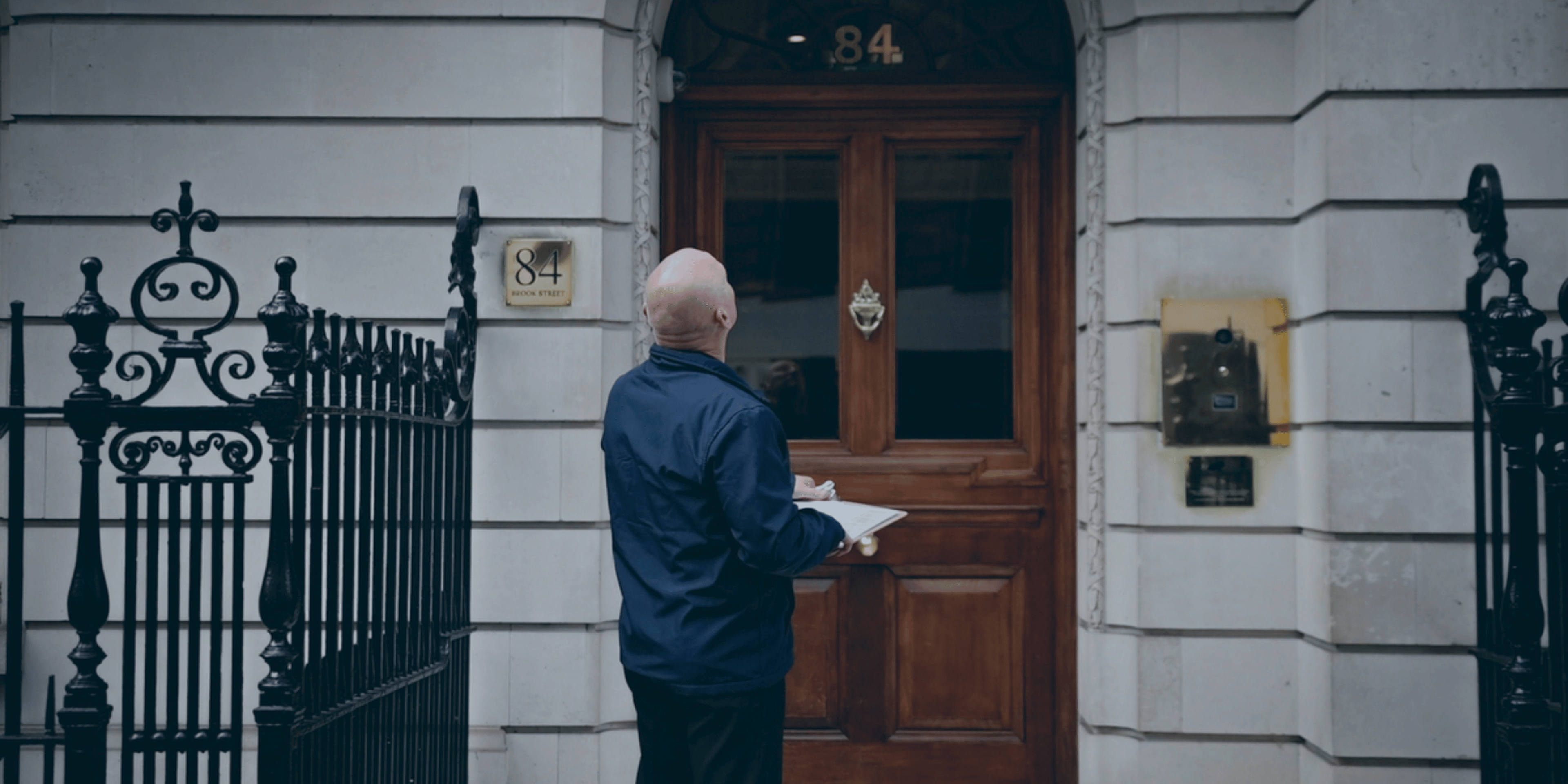
5 Steps to Launch Your CCTV Installation Business Successfully

Overview
The article centres on the essential steps required to successfully launch a CCTV installation business. It delineates five critical steps:
- Understanding the market and legal requirements
- Developing a comprehensive business plan
- Acquiring technical skills and equipment
- Implementing effective marketing strategies
- Managing operations to address installation challenges
Each of these elements is vital for ensuring compliance, credibility, and customer satisfaction within a competitive industry.
Introduction
Launching a CCTV installation business presents a unique opportunity in a rapidly evolving market, where security concerns are at an all-time high. The global surveillance camera market is expected to grow significantly, highlighting the need for businesses to understand the intricacies of this industry—from legal compliance to technical expertise.
Ignoring these complexities can lead to financial, operational, and reputational risks. Therefore, aspiring entrepreneurs must consider strategies that not only facilitate market entry but also ensure long-term success in this competitive landscape.
Understand the CCTV Installation Market and Requirements
To successfully launch a CCTV installation business, it is crucial to start with a clear understanding of and to identify your target audience, which may encompass residential clients, commercial properties, and construction sites. The reality is that grasping the legal obligations surrounding surveillance camera installations in the UK is essential, particularly in 2025, as compliance with data protection laws and local regulations is rigorously enforced. Companies are required to conduct a Data Protection Impact Assessment (DPIA) to establish a lawful basis for surveillance use, ensuring that all setups respect privacy rights and comply with the General Data Protection Regulation (GDPR).
In practise, familiarising yourself with the various types of systems available—such as IP cameras, analogue systems, and hybrid solutions—is vital. The demand for surveillance camera installations at construction sites is anticipated to grow significantly within the CCTV installation business, driven by an increased focus on security and adherence to health and safety standards. In fact, the surveillance camera market is projected to expand from £17.85 billion in 2024 to £19.97 billion in 2025, indicating a compound annual growth rate (CAGR) of 11.8%.
That said, case studies underscore the importance of clear signage indicating CCTV use and the necessity for robust policies regarding data retention and access protocols. Organisations must ensure that footage is securely stored and accessible only to authorised personnel, with retention periods typically lasting 30 days. By understanding these legal frameworks and market dynamics, the CCTV installation business can effectively tailor its services to meet client needs while ensuring compliance with industry standards. The lesson is clear: early investment in comprehensive surveillance solutions not only meets regulatory requirements but also enhances operational resilience and safeguards assets.
Develop a Comprehensive Business Plan and Legal Framework
To successfully launch your CCTV installation business, you should begin with a that outlines your goals, target audience, pricing strategy, and financial forecasts. This plan must include marketing strategies and operational procedures to guide your daily activities.
The reality is, consulting with a legal expert is crucial to navigate the necessary licences and insurance requirements, such as public liability insurance and compliance with data protection regulations. In the UK, companies are required to register with the Information Commissioner's Office (ICO) and adhere to the Data Protection Act (DPA) and General Data Protection Regulation (GDPR) guidelines.
A strong legal framework not only protects your enterprise but also cultivates trust with potential clients, ensuring that your operations conform to legal standards and industry best practises. Case studies illustrate the importance of understanding these legal frameworks, as organisations that prioritise compliance can evade substantial fines and enhance their credibility in the market.

Acquire Technical Skills and Choose the Right Equipment
To effectively embark on your CCTV installation business, it is essential to invest time in acquiring the technical skills necessary for this task, including wiring, camera positioning, and system configuration. Enrolling in relevant courses or certifications focused on security technology not only enhances your expertise but also bolsters your credibility within the field.
When selecting equipment, it is prudent to consider leading brands in the UK market, such as:
- Hikvision
- Axis
- Dahua
These brands are recognised for their reliability and advanced features. Hikvision, for example, commands a significant market share globally, renowned for its high-definition surveillance cameras and AI capabilities that improve detection accuracy. Axis provides a diverse array of high-end cameras, including dome and thermal models, well-suited for commercial applications, while Dahua is celebrated for offering user-friendly and cost-effective solutions.
It is critical to evaluate various models based on customer reviews and specific features that align with the needs of your target market. For commercial clients, high-resolution cameras are indispensable, whereas more economical alternatives may be better suited for home installations. By concentrating on these elements, you can establish a robust foundation for your CCTV installation business venture.

Implement Effective Marketing Strategies and Client Acquisition Techniques
To successfully launch your CCTV installation business, it is essential to recognise that a robust marketing strategy is not merely beneficial but critical in today’s security climate. Statistics reveal that nearly half of all adults conduct online research before hiring a service, underscoring the necessity of a strong online presence. A professional website that clearly displays your services, includes customer testimonials, and features engaging case studies establishes credibility and enhances visibility in search engines. A well-optimised site significantly increases the likelihood of being discovered by prospective customers.
In practise, utilising social media platforms serves as an effective means to engage with your audience. Regularly sharing valuable content related to security—such as tips for protecting properties or insights into the latest technology trends—positions your business as a knowledgeable authority in the field and cultivates trust among potential clients. The lesson is clear: consistent engagement fosters relationships that can translate into business.
Moreover, local advertising and networking events are vital for expanding your reach. Building partnerships with construction companies or real estate agents can lead to valuable referrals, enhancing your reputation and providing access to a wider customer base. The reality is that these collaborations can significantly impact your growth trajectory.
Providing promotions or referral discounts can also encourage new customers to select your services. Such strategies not only draw interest but also motivate satisfied customers to recommend your enterprise to others, further bolstering your customer acquisition efforts. This approach is not merely a tactic; it is a strategic investment in your business’s future.
Additionally, effective email marketing campaigns can yield an impressive ROI of 36:1, emphasising the importance of maintaining communication with potential and existing clients. By merging these strategies, you can develop a comprehensive marketing method that fosters growth and positions your business in CCTV installation as a reliable provider in the security sector. Ultimately, prioritising a is not just a choice; it is a necessity for ensuring long-term business resilience.
Manage Operations and Troubleshoot Common Installation Challenges
To ensure a successful CCTV installation business, it is essential to establish for scheduling setups, managing inventory, and addressing customer inquiries. A well-organised checklist for setups is crucial to uphold consistency and quality across projects. The reality is that common issues, such as connectivity problems and equipment malfunctions, can arise from poor cable terminations or damaged connectors. Familiarity with the technical specifications of your equipment allows for prompt on-site issue resolution, thereby reducing downtime and improving customer satisfaction.
Maintaining open communication with clients throughout the setup process is vital. This not only enhances their experience but also builds trust, which is essential for long-term relationships. Statistics indicate that residences fitted with security cameras are 300% less prone to burglary, underscoring the significance of proper setup and maintenance. Additionally, Priority First specialises in integrating its services with existing systems, including major surveillance, access control, and alarm systems, ensuring seamless operation. Proactive customer support is crucial; case studies reveal that timely assistance with compatibility issues or technical challenges significantly enhances satisfaction rates. For instance, customer Thomas Tanner praised the simplicity of setup and the outstanding image quality of his 8 camera 4K bullet system, highlighting the advantages of efficient setup and support.
By prioritising these operational strategies and incorporating ongoing training for technicians to stay updated with evolving technology, you can position your CCTV installation business for success in the competitive market. This approach not only offers tailored security solutions but also integrates seamlessly with existing systems, reinforcing the idea that early investment in security prevents greater losses later.

Conclusion
Establishing a CCTV installation business is grounded in the reality that security challenges are increasingly pressing for many enterprises. This underscores the need for a strategic approach that encompasses:
- Market understanding
- Legal compliance
- Technical expertise
- Effective marketing
- Operational management
Ignoring these critical elements can lead to significant financial, operational, and reputational risks.
The implications of overlooking security are clear: businesses may face increased vulnerability to theft and damage, ultimately impacting their bottom line. By prioritising a comprehensive understanding of market trends and legal requirements, aspiring entrepreneurs can develop a robust business plan that not only meets regulatory standards but also builds a solid reputation within the industry.
In practise, the CCTV installation sector presents a substantial opportunity for those willing to invest in knowledge and compliance. Entrepreneurs who embrace effective marketing strategies and manage operations efficiently can enhance their service offerings and contribute to safer environments for clients. This proactive approach fosters business growth while ensuring a lasting impact in the security sector.
The lesson is clear: early investment in security measures not only safeguards assets but also fortifies business resilience. By adopting a strategic mindset and implementing best practises, entrepreneurs can position themselves for success in a rapidly evolving market.
Frequently Asked Questions
What is essential for launching a CCTV installation business?
It is crucial to understand current market trends, identify your target audience (residential clients, commercial properties, and construction sites), and grasp the legal obligations surrounding surveillance camera installations in the UK.
What legal requirements must be considered for CCTV installations in the UK?
Companies must conduct a Data Protection Impact Assessment (DPIA) to establish a lawful basis for surveillance, ensuring compliance with data protection laws and the General Data Protection Regulation (GDPR).
What types of CCTV systems should one be familiar with?
Familiarity with various types of systems, including IP cameras, analogue systems, and hybrid solutions, is vital for a CCTV installation business.
What is the projected growth of the surveillance camera market?
The surveillance camera market is expected to expand from £17.85 billion in 2024 to £19.97 billion in 2025, reflecting a compound annual growth rate (CAGR) of 11.8%.
What are the best practises regarding CCTV signage and data retention?
Clear signage indicating CCTV use is important, along with robust policies for data retention and access protocols. Footage should be securely stored and accessible only to authorised personnel, with typical retention periods lasting 30 days.
Why is it important to develop a comprehensive business plan for a CCTV installation business?
A comprehensive plan outlines goals, target audience, pricing strategy, financial forecasts, marketing strategies, and operational procedures, guiding daily activities and ensuring business success.
What legal aspects should be addressed when starting a CCTV installation business?
Consulting a legal expert to navigate necessary licences, insurance requirements (like public liability insurance), and compliance with the Data Protection Act (DPA) and GDPR is essential.
How does a strong legal framework benefit a CCTV installation business?
A strong legal framework protects the business, cultivates trust with clients, ensures compliance with legal standards, and helps avoid substantial fines while enhancing credibility in the market.




